Laws and regulation: Top news on cosmetics regulation across the APAC region

1 – Halal cosmetics market set to soar to $52bn by 2025 as sector becomes ‘increasingly inclusive’
Not only is the market for halal cosmetics growing at full tilt, but users are also willing to pay a premium for certified products.
That is according to an analysis of the segment by Research and Markets, which forecasts annual growth of 12.3%, to be worth over $52bn by 2025.
Driven by demand from the ever-strengthening global Islamic economy, the report says both large- and small-scale manufacturers have been increasingly tapping into the market.
Growing demand for halal
Analysts believe this trend is being further bolstered by growing concern among non-Muslim consumers about the usage of animal-derived ingredients, such as gelatin and collagen. These have prompted increasingly more brand names in the wider cosmetics industry to release more halal-certified products.
2 – Singapore skin cream shock: Infant hospitalised after ‘potent medicinal ingredients’ cause serious adverse reactions
Four cosmetics creams in Singapore were found to contain potent medicinal ingredients, with one causing an infant to develop Cushing’s syndrome.
The Health Science Authorities (HSA) issued the warning after an infant, less than a year old, was sent to hospital after being treated with an unlabelled cream from a traditional practitioner in Malaysia.
At the same time, HSA warned against three other creams used to treat eczema: D’Splendid Kidzema Cream, Claír De Lune P. Tuberose Day Cream, Claír De Lune S. Involcurata Night Cream.
Temporary relief
According to HSA, those who used the four creams experienced “rapid relief” of their condition, which worsened when they stopped using them.
3 – Asbestos-containing cosmetics: Officials reveal products were manufactured in China, not Taiwan
Taiwan’s Food and Drug Administration (FDA) has confirmed that asbestos-tainted Claire’s cosmetics were produced in China, and not in Taiwan as previously reported.
Its counterparts in the US and Canada originally informed the authority that five contaminated cosmetics products by Claire’s Stores Inc. and Beauty Plus Global Inc were made by a company based in the Taiwanese municipality of Tainan.
Company refutes allegations
Tainan’s Public Health Bureau conducted further investigation into the Taiwanese company.
However, the company in question denied producing one of the products and said it had commissioned a Chinese company to produce the other four.
It argued that standards in China were different from European and North American standards and the raw materials used had passed inspection in China.
4 - Counterfeit crackdown: HK officials seizes over HK$500,000 worth of cosmetics from alleged counterfeit syndicates
The Hong Kong Customs has confiscated an estimated HK$590,000 ($75,493) worth of cosmetic goods after busting two alleged counterfeit cosmetics rings in a five-day operation.
The authority raided seven shops and three storage facilities and an estimated total of 6,400 skin care and cosmetic products were found and confiscated.
The cosmetic products seized during the operation included toner, lotion, moisturising gel and sunscreen.
Anti-counterfeit operation
According to the press statement, the aforementioned shops were first suspected during the routine patrols of Custom officers.
The agency took further action after an in-depth investigation with the assistance of the trademark owners.z
5 – Not up to scratch: Singapore researchers find a third of eczema apps inconsistent with guidelines
Researchers from Nanyang Technological University of Singapore have claimed that a third of eczema management apps available today do not comply with international guidelines.
The team, led by Associate Professor Josip Car from the Lee Kong Chian School of Medicin, assessed a total of 98 mobile applications – 67 in English, 22 in Chinese, and 9 in Spanish.
The apps were evaluated with international eczema guidelines from Singapore, the UK, the US, Argentina and China to assess educational information, eczema-specific tracking functions, and compliance with health information principles.
The study was first published in the British Journal of Dermatology.
Inconsistent information
The research found that none of the apps complied with all criteria for educational information, tracking functions or health information principles.
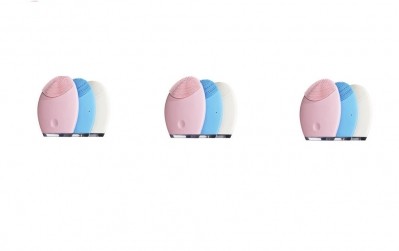
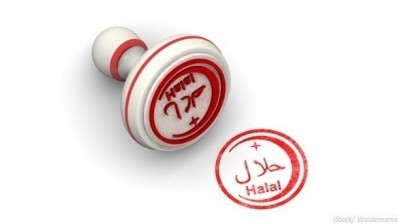
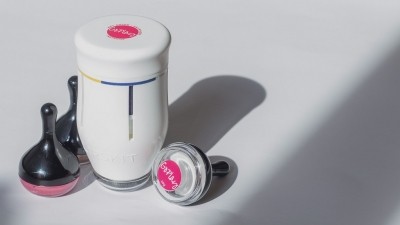
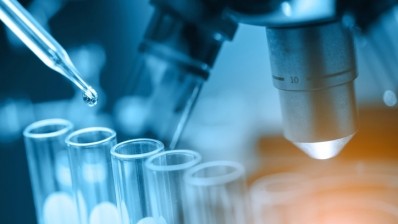


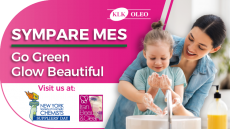


![Indus Valley is working to corner 30% of India's online premium boxed hair colour market. [Indus Valley]](/var/wrbm_gb_food_pharma/storage/images/_aliases/wrbm_tiny/publications/cosmetics/cosmeticsdesign-asia.com/article/2024/07/26/indus-valley-aims-to-secure-30-of-india-s-online-premium-hair-colour-market-with-organic-offerings/17594932-5-eng-GB/Indus-Valley-aims-to-secure-30-of-India-s-online-premium-hair-colour-market-with-organic-offerings.jpg)
![[Getty Images]](/var/wrbm_gb_food_pharma/storage/images/_aliases/wrbm_tiny/publications/cosmetics/cosmeticsdesign-asia.com/china/china-focus-latest-developments-in-china-s-booming-beauty-market25/17606695-1-eng-GB/China-focus-Latest-developments-in-China-s-booming-beauty-market.jpg)
![Kosé has launched makeup brand Visée in Singapore as part of plans to reinforce its position in SEA. [Visée]](/var/wrbm_gb_food_pharma/storage/images/_aliases/wrbm_tiny/publications/cosmetics/cosmeticsdesign-asia.com/headlines/business-financial/visee-singapore-kose-aims-to-enhance-brand-visibility-in-sea-with-new-launch/17587264-1-eng-GB/Visee-Singapore-Kose-aims-to-enhance-brand-visibility-in-SEA-with-new-launch.jpg)
![ble C&C is set on reinforcing its competitiveness in China’s beauty market. [Missha]](/var/wrbm_gb_food_pharma/storage/images/_aliases/wrbm_tiny/publications/cosmetics/cosmeticsdesign-asia.com/headlines/business-financial/able-c-c-aims-to-strengthen-competitiveness-in-china-through-online-expansion-kol-collabs/17591626-1-eng-GB/Able-C-C-aims-to-strengthen-competitiveness-in-China-through-online-expansion-KOL-collabs.jpg)

![LG H&H genetic study says 23 genetic regions affect natural skin tone. [Getty Images]](/var/wrbm_gb_food_pharma/storage/images/_aliases/wrbm_tiny/publications/cosmetics/cosmeticsdesign-asia.com/article/2024/07/23/lg-h-h-discovery-of-genetic-skin-tone-factors-in-east-asians-potentially-key-to-skin-radiance-developments/17587210-1-eng-GB/LG-H-H-discovery-of-genetic-skin-tone-factors-in-East-Asians-potentially-key-to-skin-radiance-developments.jpg)

![DR.CI:LABO expects brand-supplier partnerships gain more public prominence as consumers interest in skin care grows online. [Dr.Ci:Labo]](/var/wrbm_gb_food_pharma/storage/images/_aliases/wrbm_tiny/publications/cosmetics/cosmeticsdesign-asia.com/article/2024/07/22/brand-supplier-partnerships-will-come-to-the-fore-amid-the-online-skin-care-landscape-dr.ci-labo/17576755-1-eng-GB/Brand-supplier-partnerships-will-come-to-the-fore-amid-the-online-skin-care-landscape-DR.CI-LABO.png)


